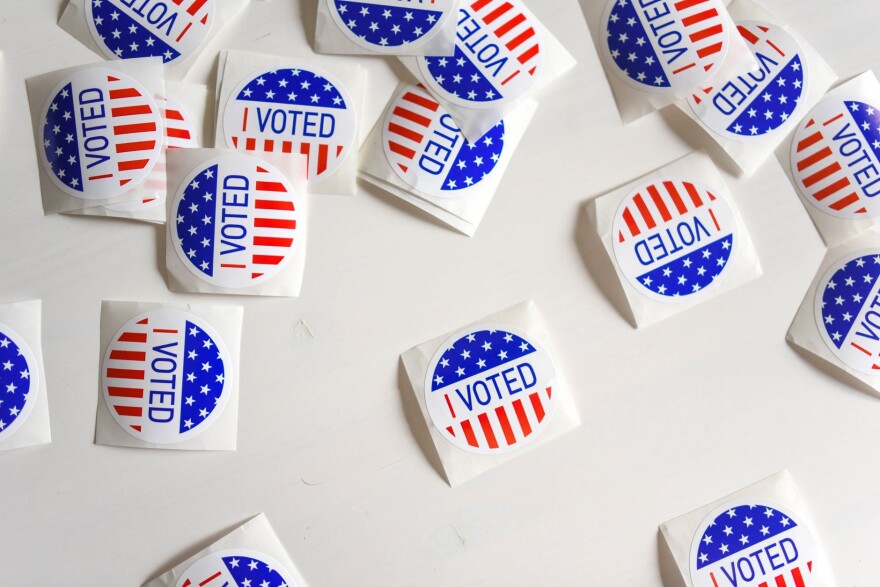The number of unaffiliated voters in North Carolina has been steadily rising for decades. They surpassed registered Republicans in 2017, and now, they're on track to surpassing registered Democrats — possibly in the coming days.
The latest numbers from the North Carolina State Board of Elections show unaffiliated voters are just 3,369 people away from surpassing the number of registered Democrats. That gap shouldn't last long, according to political scientist Michael Bitzer of Catawba College, who has written a paper about the rise in unaffiliated voters in North Carolina.
"If the trends continue, this week has the potential of being the last week of registered Democrats outnumbering unaffiliateds," Bitzer said.
The trend is largely driven by younger voters under 40 who are breaking with older generations by rejecting party labels on their voter registrations.
About 42% of millennial voters in North Carolina are registered as unaffiliated, according to Bitzer, and nearly half — or 47% — of North Carolina's youngest voters in Generation Z have registered as unaffiliated.
"Maybe they don't like the party labels, maybe they want the freedom to choose among the two different political parties' primaries, and perhaps they are looking for an alternative that the two political parties aren't giving them," Bitzer said.
Still, many of those registered as unaffiliated likely lean toward one political party or the other, Bitzer said, and political candidates shouldn't necessarily assume they are swing voters.
"They tend to be folks that don't like the party labels, but for most people that identify as an independent, which we're assuming unafilliateds are, they are actually partisans at heart, just maybe not in appearance," Bitzer said.
The shift could be a signal of growing dissatisfaction among young voters with the two political parties, and Bitzer said it will be incumbent on the two parties to try to reach out these voters to find ways to keep them engaged.



